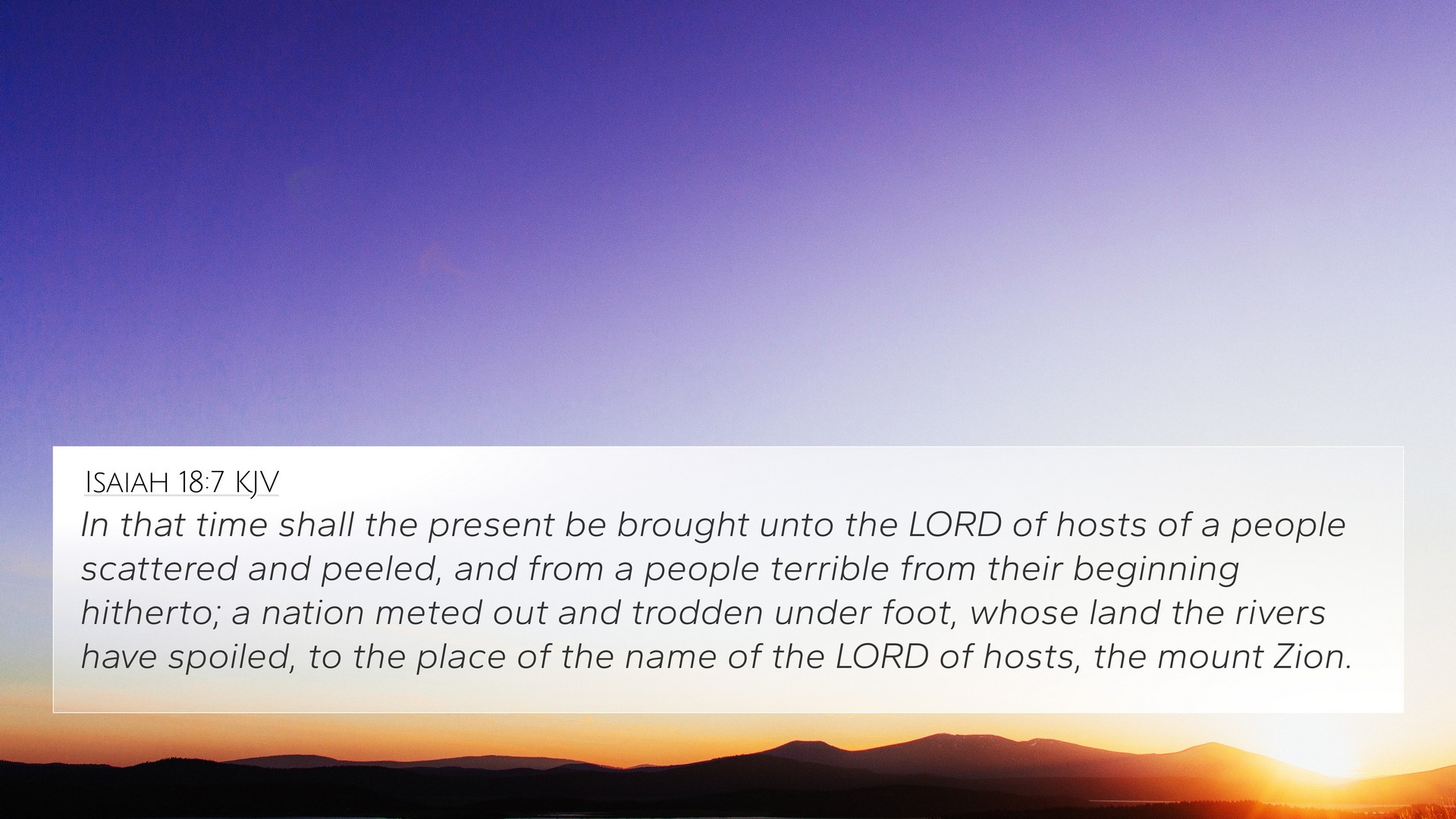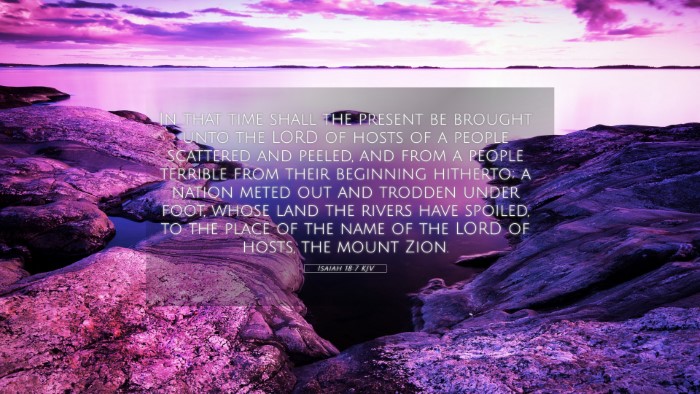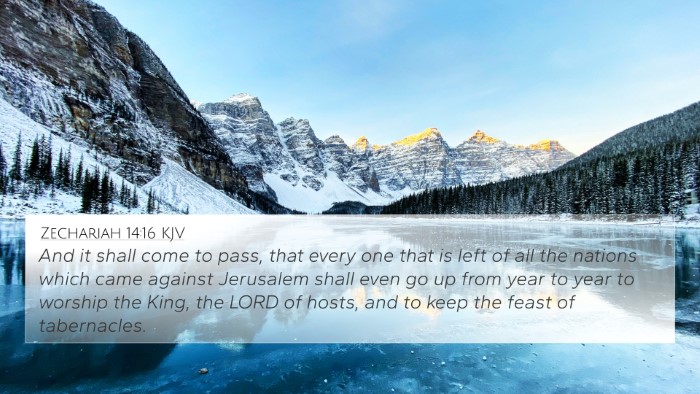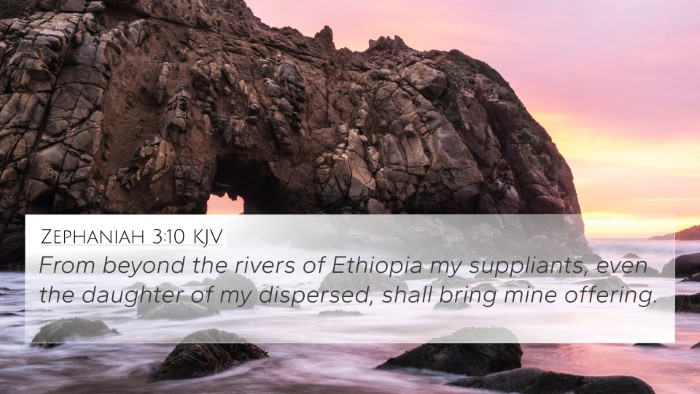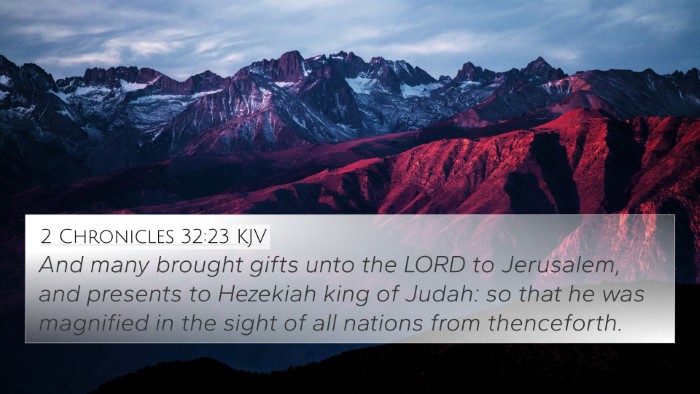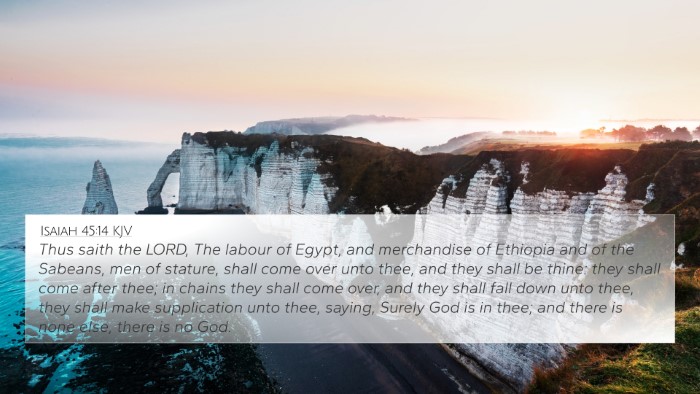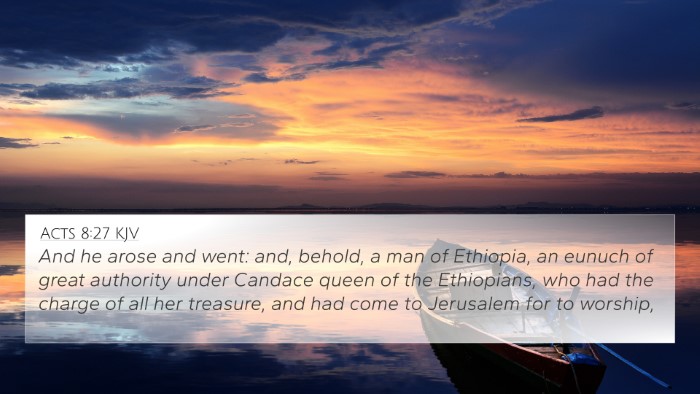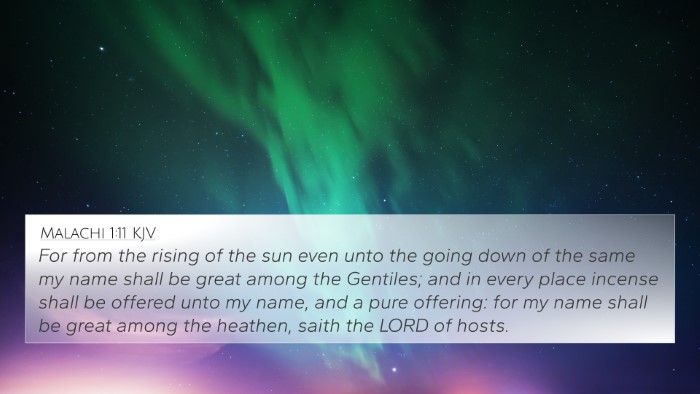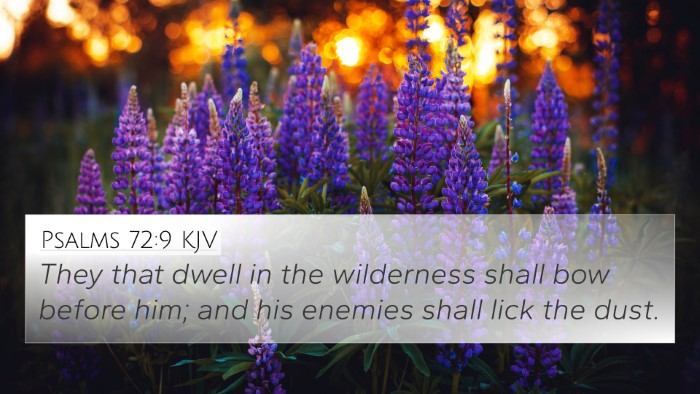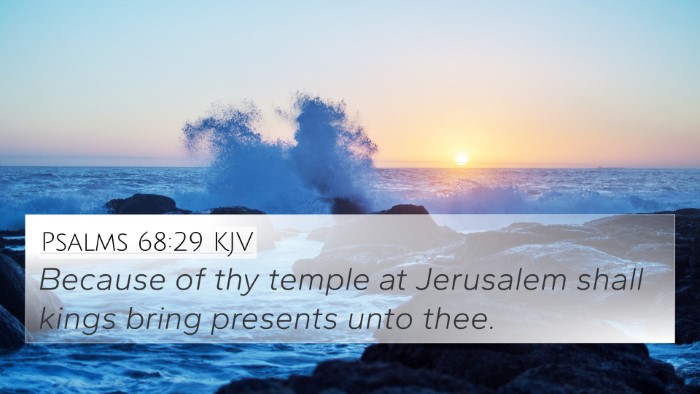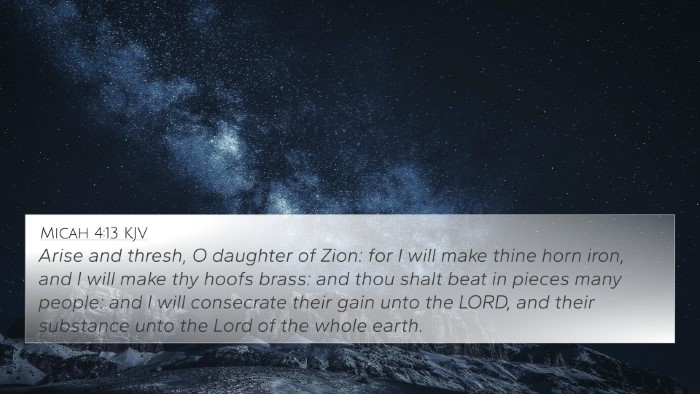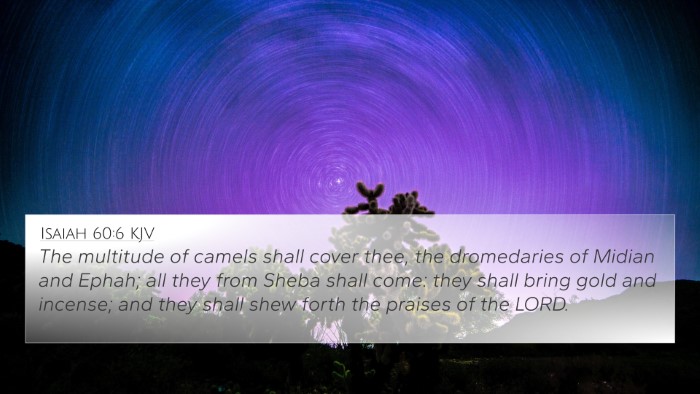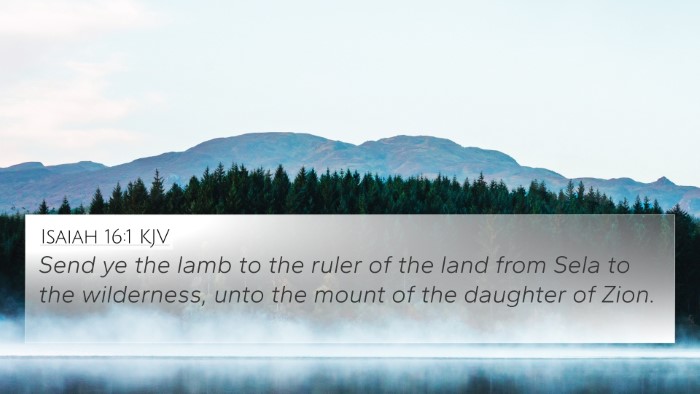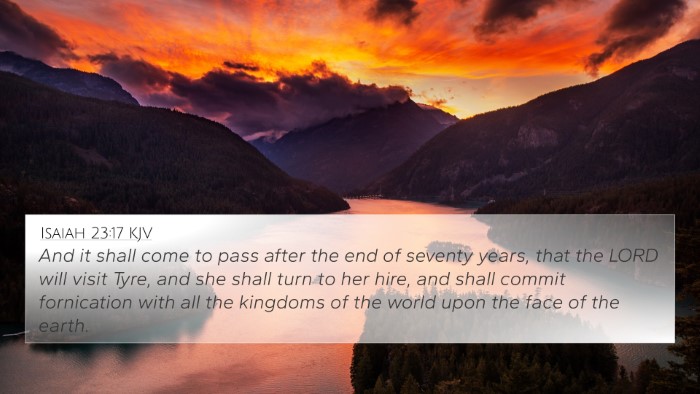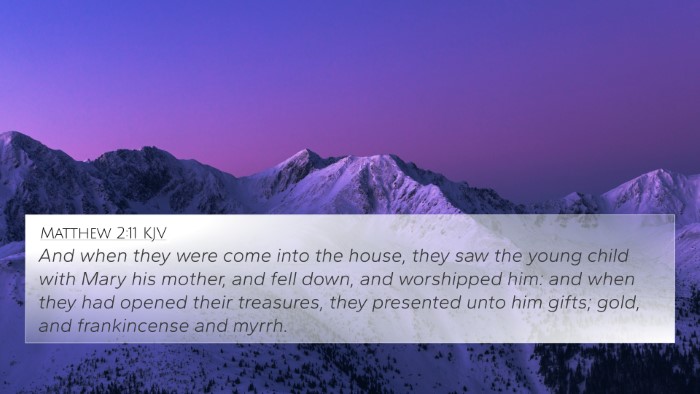Understanding Isaiah 18:7
Isaiah 18:7 reads, "In that time shall the present be brought unto the LORD of hosts of a people scattered and peeled, and from a terrible nation, whose land the rivers have spoiled, to the place of the name of the LORD of hosts, the mount Zion." This verse, eliciting themes of offering and divine recognition, calls for a deeper dive into its meanings through various commentaries.
Summary of Insights
In essence, Isaiah 18:7 illustrates the response of nations to the God of Israel. The commentary from Matthew Henry emphasizes the idea that the people, once scattered and oppressed, will bring offerings to God, a representation of their newfound respect for His power and mercy. Specifically, his insights suggest:
- The "present" symbolizes not just physical gifts, but a deeper acknowledgment of God's sovereignty.
- The "people scattered and peeled" refers to the Gentiles or nations that have experienced turmoil, perhaps alluding to nations or peoples previously viewed as enemies of Israel.
Albert Barnes adds to this interpretation by framing the "terrible nation" as a metaphor for those who have been judged. His commentary suggests that:
- This nation may have initially been hostile, but their submission to God indicates a transformation.
- The rivers mentioned serve as a symbol of destruction and disruption, a common trait of nations at war or in conflict.
Adam Clarke expounds upon the geographical significance of "the place of the name of the LORD," suggesting that this places emphasis on Jerusalem, the spiritual heart of Israel and a pivotal place for divine encounters. He indicates that:
- The offerings are a foreshadowing of missions to bring all nations to God.
- This verse encapsulates God's inclusive approach to salvation, extending beyond Israel to all peoples.
Connections to Other Bible Verses
Isaiah 18:7 has considerable inter-Biblical dialogue, establishing thematic connections with several other scriptures. Here are 7-10 related Bible verses that illuminate similar themes:
- Isaiah 66:20 - Discusses bringing offerings to the Lord from all nations, echoing the theme of inclusivity.
- Matthew 28:19 - The Great Commission, emphasizing making disciples of all nations.
- Psalms 68:29 - Acknowledges tribute offered to God by distant nations.
- Romans 15:16 - Paul references priestly service to the Gentiles, relating to the 'present' in Isaiah.
- Revelation 21:24 - Envisions nations bringing glory into the New Jerusalem.
- Zechariah 14:16 - Illustrates the coming of nations to worship the Lord.
- Jeremiah 3:17 - Speaks of all nations being gathered to the mountain of the Lord.
- Hebrews 13:15 - Encourages believers to offer sacrifices of praise unto God.
- John 10:16 - Jesus refers to having other sheep that are not of this fold, indicating the reach of His ministry.
Thematic Bible Verse Connections
This verse resonates with many key themes that appear throughout the Scripture:
- Transformation and Redemption - Highlighting changes in nations formerly at enmity with God, showing His power to redeem.
- Worship and Offerings - A recurring motif emphasized in several Biblical texts, indicating subservience to God's authority.
- Universal Outreach - The encompassing nature of God's call to all nations, which is a central tenet in both testaments.
Cross-Referencing Biblical Texts
Tools for Bible cross-referencing can greatly enhance one's study, providing clarity to connections found in similarly themed verses or narratives. Some resources that can facilitate this work include:
- Bible concordances for easy reference lookup.
- Bible cross-reference guides available in many study Bibles.
- Comprehensive Bible cross-reference materials for thematic analysis.
Conclusion
In summary, Isaiah 18:7 prophetically calls for nations, once scattered, to acknowledge God by bringing their offerings to Him, marking a crucial moment in their spiritual journey. The commentary insights from Henry, Barnes, and Clarke illustrate the profound implications for understanding God's dealings with the world. By employing cross-referencing tools and engaging with the Bible's rich interconnections, believers can gain deeper insights into both isolated texts and the overarching narrative of redemption found within Scripture.
